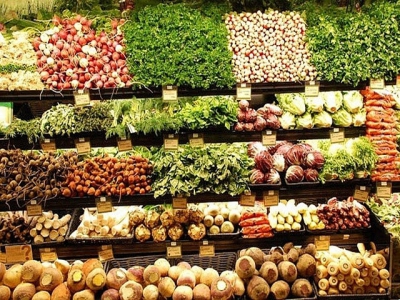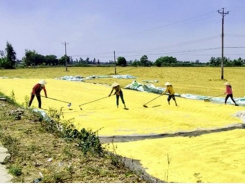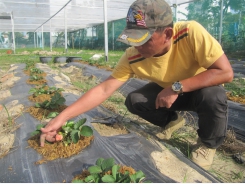Việt Nam develops modern supply system for farm products

Ho Chi Minh City — Việt Nam is working to develop a system of modern agricultural product supply centres to promote the consumption of farm produce, enhance food safety and hygiene, and improve the competitive edge of Vietnamese goods.
Việt Nam is working to develop a system of modern agricultural product supply centres to promote the consumption of farm produce, enhance food safety and hygiene, and improve the competitive edge of Vietnamese goods. — VNS Photo Văn Châu
The Ministry of Agriculture and Rural Development aims to restructure the entire chain of production, procession and distribution of agricultural products.
The centres will improve connections between production and distribution activities that will enhance efficiency, increase consumption of agricultural products, and ensure quality.
The products entering the centres will be controlled and have traceable origins to ensure quality, and there will be classification and packaging of products according to recognised standards.
In particular, a trading floor with information about market prices in many countries and integrated payment services will be created to offer favourable conditions for businesses.
Minister of Agriculture and Rural Development Nguyễn Xuân Cường said that the country’s agriculture lacks effective productivity because most farms are small, exposing the sector to threats of loss and crop failure, especially under climate change.
Besides shrimp, catfish and milk, most agricultural products have very short value chains, he said. Farmers are the most vulnerable as production still depends heavily on weather conditions while infrastructure remains limited.
In the context of global integration, more public-private partnerships are needed to develop financial resources for a complete agricultural management ecosystem that would satisfy food demand of the country's citizens but also the international market, Cường said.
“Việt Nam has to continue agricultural restructuring, and must focus on products in which the country has comparative advantages. Innovation and international cooperation need to be enhanced,” he said.
Ousmane Dione, country director for World Bank Việt Nam, has raised concerns over quality and sustainability of Việt Nam’s agricultural growth, saying that profits earned by small households were low and post-harvest losses were considerable. Food quality and safety have not been ensured, hindering the country’s agriculture sector from expansion.
He recommended that Việt Nam strengthen ties among stakeholders and provinces in planning of production areas and improve trade promotions as well as productivity.
Dependence on China
From 2009 to 2018, Việt Nam's agricultural export market expanded from 72 countries to 200 countries, with annual turnover of US$40 billion.
However, about 40 per cent of the total value of agricultural exports are to China, with more than 70 per cent of vegetables exported to China.
Because of the heavy dependence on the Chinese market, the agricultural sector has faced difficulties during the COVID-19 epidemic because of sluggish trade conditions.
Apart from that, the agricultural export sector also suffers from a deficiency of market information, lack of strict control of food safety and hygiene, and unclear origin of goods.
In terms of total export value, Vietnamese agricultural products' export prices are low, even though they are among the world's leaders in terms of output such as pepper, cashew, shrimp, catfish, coffee and rice.
Pepper exports rank first in the world, but the export price of pepper ranks only eighth; cashew is also first in the world, but the price ranks sixth; rice and coffee are second and third in the world, but the export prices are only 10th, according to the Ministry of Agriculture and Rural Development.
Related news
Tools

Phối trộn thức ăn chăn nuôi

Pha dung dịch thủy canh

Định mức cho tôm ăn

Phối trộn phân bón NPK

Xác định tỷ lệ tôm sống

Chuyển đổi đơn vị phân bón

Xác định công suất sục khí

Chuyển đổi đơn vị tôm

Tính diện tích nhà kính

Tính thể tích ao



 Agricultural land market still an obstacle for enterprises
Agricultural land market still an obstacle for enterprises  Mekong Delta farmers expand smart rice farming
Mekong Delta farmers expand smart rice farming